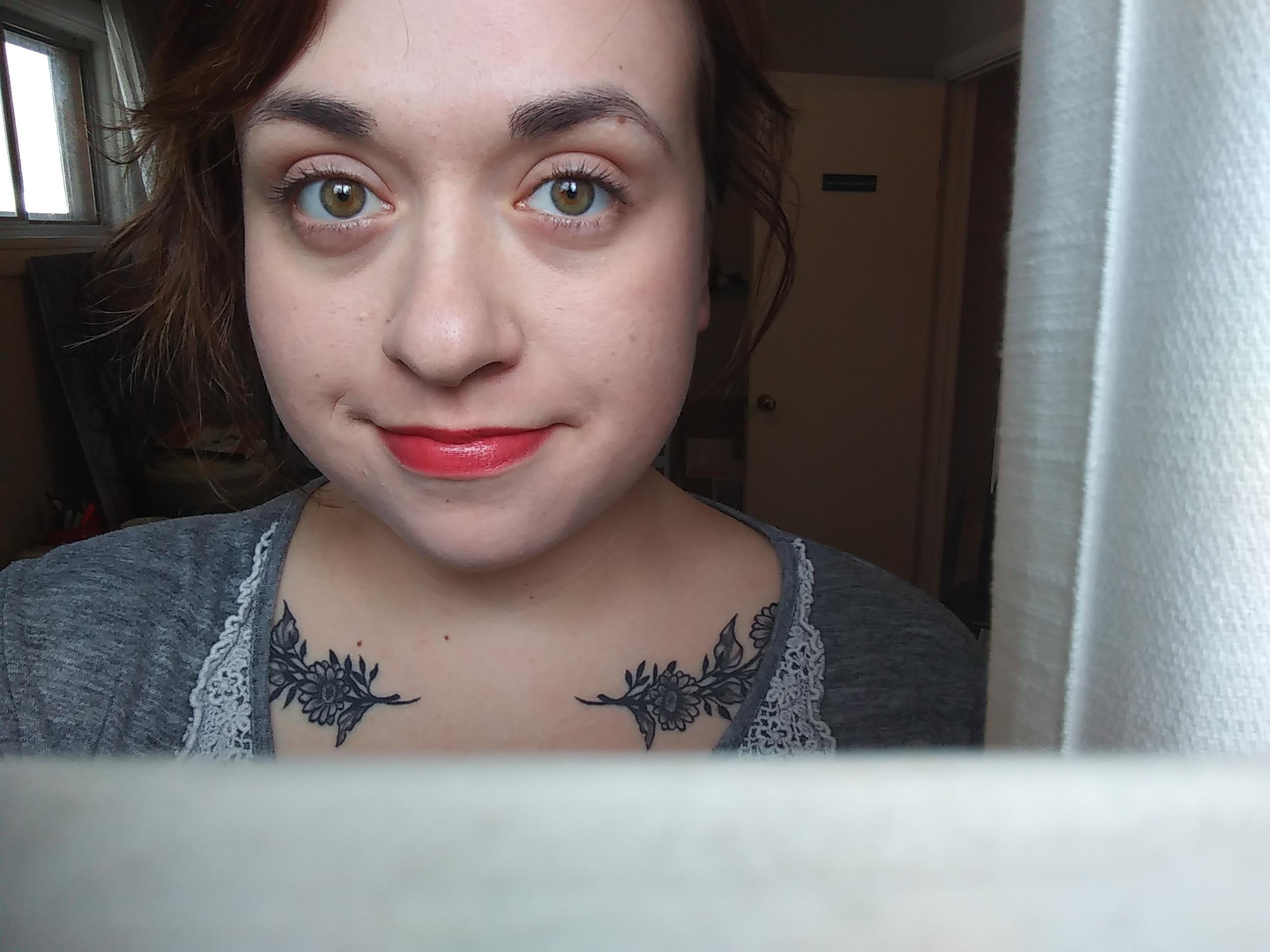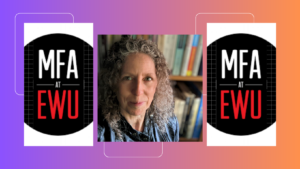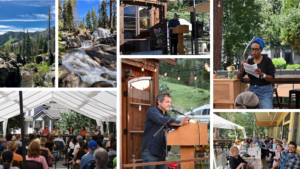Student Spotlight: Lauren Gilmore
 Lauren Gilmore is a student in the English Bachelor of Arts program with an emphasis in Literary Studies. She will graduate in March 2021.
Lauren Gilmore is a student in the English Bachelor of Arts program with an emphasis in Literary Studies. She will graduate in March 2021.
What projects have you worked on that you would like to highlight?
Right now, I am preparing to teach a class at Spark Central for teens and adults called Reconstructing Cityscapes: A Creative Introduction to Critical and Cultural Theory. It was going to be in-person in May, but because of COVID-19 I am adapting it as an online class. The course is designed to offer critical tools that have the potential to fundamentally reorganize our society to people who are excluded from traditional academic spaces. I am interested in finding more ways to connect with the public. I am also currently preparing an article about Stephen King, arguing for the relevance of #MeToo and Twitter discourse in addressing embodied authorship and resistance in commercial horror texts.
Additionally, I’m working on several creative projects, including a revision of a young adult horror novel. I have also been working with a student-led organization to put together a social justice symposium, Pencils Down: Confronting Hate with and in the Humanities, which has been a really rewarding way to strengthen partnerships between students and the wider community. We are working now on finding the best ways to digitize this work, and will additionally be hosting student-focused support groups over Zoom.
As far as past projects, I worked on a Digital Humanities project in a course taught by Kate Crane and Ian Green that explored the social and historical hauntings of places. We created digital projects that corresponded to different physical places on campus that could be accessed by QR Code. For another course, I curated and printed a zine titled Carrion that explored the potential for social change from within Humanities departments through a collection of personal essays that addressed the academy’s role in wider civic discussions. This included participants from Eastern, as well as the wider community, and students and faculty from universities in other states.
I was attempting to model a form of scholarship that is rooted in listening, though this has guided a lot of my projects and not necessarily come into clarity. Before coming to Eastern, I published a collection of poetry, Outdancing the Universe, with University of Hell Press, and organized and completed a cross-country poetry tour where I performed at various poetry slams, bookstores, and other venues. While at Eastern, I completed another collection of poetry, and the manuscript is currently under consideration with my publisher.
How have your EWU experiences shaped you?
I would say that I’ve become a lot more confident in my ability to communicate and think critically. Before college, most of my writing projects were creative (poetry and fiction) but through my classes I’ve become more and more excited about improving my academic and argumentative writing skills. It’s also become incredibly clear to me that I would like to be an educator, at some level and at some capacity, because I find it to be a very worthwhile, as well as devastating and exhausting, joy.
What important lessons or tips do you have for future students?
I think it’s really important to find your allies, both students and faculty, and take care of your mental health. Hold onto the texts and authors and friends that remind you that the work you are pursuing is urgent. Try your best to remain diligent about working against a scarcity mindset. The competition isn’t between you and other students or writers, but between all of us and all of those forces that work against us.
Is there anything else you would like to share with readers?
Lastly, I try to remember that universities can be very insulated, distorted spaces that somehow make things seem both less and more important than they are at the same time. To combat this, I try to continually remind myself that earnest effort in this field is for improving our sense of the stakes, becoming more articulate communicators, creating something we think is beautiful, allying with wider communities, etc. and not the way to join an intellectual elite or elevate yourself above other forms of knowledge production.

 Lauren Gilmore is a student in the English Bachelor of Arts program with an emphasis in Literary Studies. She will graduate in March 2021.
Lauren Gilmore is a student in the English Bachelor of Arts program with an emphasis in Literary Studies. She will graduate in March 2021.

